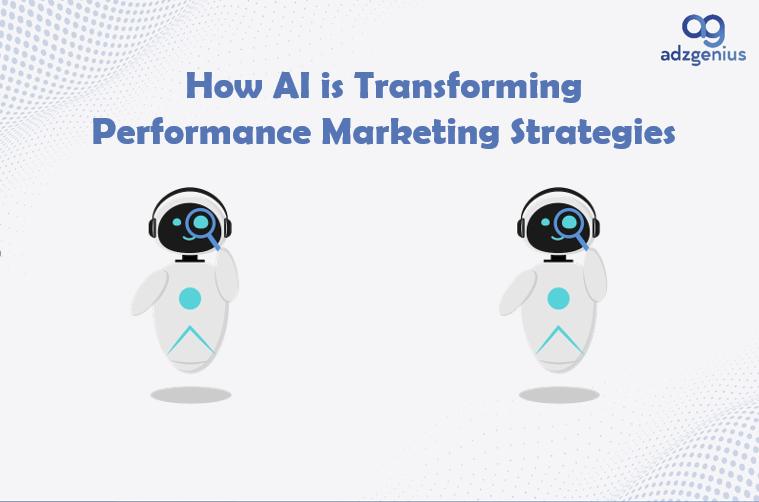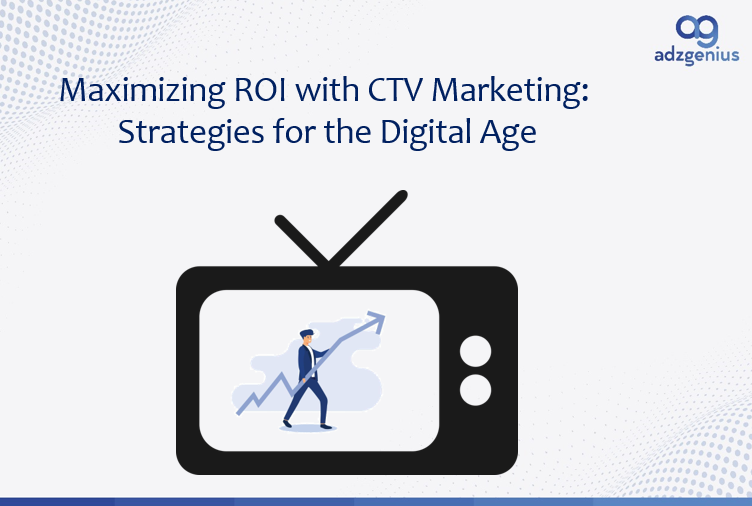n today’s hyper-competitive digital landscape, businesses are constantly seeking ways to enhance their performance marketing strategies. Artificial Intelligence (AI) has emerged as a game-changing technology, revolutionizing how marketers target, engage, and convert their audiences. By harnessing the power of AI, businesses can achieve unprecedented levels of personalization, efficiency, and ROI. Here’s a closer look at how AI is reshaping the performance marketing landscape.

1. Enhanced Audience Targeting
AI enables marketers to analyze vast amounts of data to uncover deep insights about their audience. Through machine learning algorithms, AI can segment audiences based on behavior, preferences, and demographics more precisely than ever before. These insights allow marketers to create hyper-targeted campaigns that resonate with specific audience segments, driving higher engagement and conversion rates.
For example, predictive analytics powered by AI can anticipate customer needs and preferences, enabling businesses to deliver the right message at the right time. This level of precision minimizes ad spend wastage and maximizes ROI.
2. Dynamic Ad Personalization
Personalization has become a cornerstone of successful marketing campaigns. AI takes personalization to the next level by dynamically tailoring ad content to individual users in real time. Using data such as browsing history, purchase behavior, and social media interactions, AI algorithms can craft personalized messages that feel uniquely relevant to each user.
Dynamic creative optimization (DCO), an AI-driven technology, automatically generates and tests multiple ad variations to determine which performs best for different audience segments. This ensures that every user sees the most effective version of an ad, boosting click-through and conversion rates.
3. Real-Time Performance Optimization
One of AI’s most significant advantages in performance marketing is its ability to analyze campaign data in real time. AI-powered tools can monitor key performance metrics, identify underperforming campaigns, and make instant adjustments to improve outcomes.
For instance, AI can automatically adjust bidding strategies on ad platforms like Google Ads or Facebook Ads to maximize impressions, clicks, or conversions within a specified budget. This level of automation not only saves time but also ensures optimal campaign performance around the clock.
4. Smarter Predictive Analytics
AI’s predictive capabilities enable marketers to forecast trends and customer behaviors with remarkable accuracy. By analyzing historical data, AI can predict which products are likely to perform well, which customers are at risk of churn, and which channels will yield the highest ROI.
These insights empower marketers to make data-driven decisions, allocate budgets more effectively, and create proactive strategies that stay ahead of the competition.
5. Chatbots and Conversational AI
Customer engagement is a critical component of performance marketing, and AI-powered chatbots have become invaluable tools in this regard. Chatbots can engage with customers in real time, answer queries, and guide them through the sales funnel.
Advanced conversational AI systems can even understand and respond to complex customer intents, creating seamless and personalized interactions that enhance the overall user experience. By automating customer support and lead nurturing, businesses can save resources while driving higher customer satisfaction and retention.
6. Streamlined Content Creation
AI is also transforming the content creation process. Tools like GPT models can generate high-quality copy for ads, emails, and landing pages in a fraction of the time it would take a human. Additionally, AI can analyze which types of content resonate most with specific audiences and provide recommendations for future campaigns.
By streamlining content creation, AI allows marketers to focus on strategic tasks while maintaining a consistent flow of compelling and engaging content.
7. Fraud Detection and Prevention
Ad fraud is a significant challenge in performance marketing, costing businesses billions annually. AI helps combat this issue by detecting fraudulent activities such as click fraud, fake impressions, and bot traffic. Machine learning algorithms can identify unusual patterns and flag suspicious activity, ensuring that marketing budgets are spent effectively.

The Future of AI in Performance Marketing
As AI technology continues to advance, its impact on performance marketing will only grow. From voice search optimization and augmented reality ads to deeper integration with IoT devices, the possibilities are endless. Businesses that embrace AI-driven marketing strategies will be better equipped to adapt to changing consumer behaviors and maintain a competitive edge in the digital age.
Final Thoughts
AI is not just a buzzword—it’s a transformative force reshaping the marketing industry. By leveraging AI tools and techniques, businesses can create more effective, efficient, and engaging performance marketing campaigns. Whether it’s through enhanced audience targeting, real-time optimization, or smarter analytics, AI is helping marketers achieve results that were once unimaginable.
The key to success lies in staying informed about the latest AI advancements and integrating them strategically into your marketing efforts. By doing so, you’ll unlock new opportunities to connect with your audience and drive measurable results.



